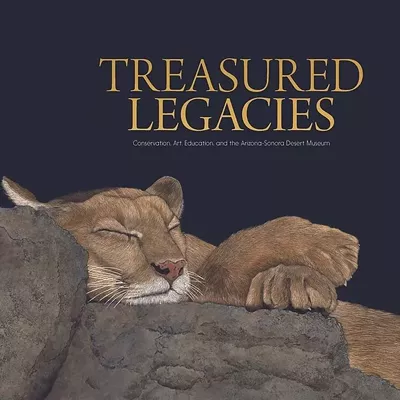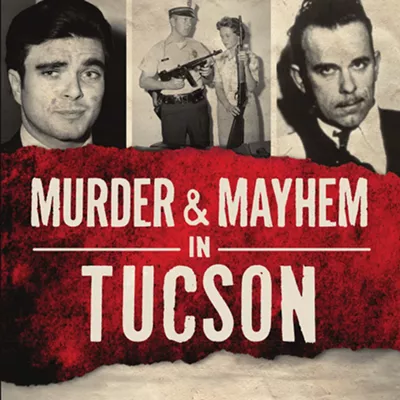In I'll Go and Do More, author Carolyn Niethammer details the life of Annie Dodge Wauneka, a Navajo woman who took full advantage of her opportunity to make a difference.
That life had an enormous impact on the Navajo Nation in northern Arizona and New Mexico. Born in 1910 to a temporary fill-in wife of legendary Navajo leader Chee Dodge, Annie was raised by her wealthy and influential father in his large, white sandstone house at Sonsola Buttes, N.M.
In childhood, Annie was a sheepherder for her father's huge flock, but eventually went to school where she learned to speak English well because the use of her native tongue was forbidden. In 1929 she married George Wauneka and they operated her father's holdings in Tanner Springs, Ariz.
Over time the couple would have 10 children, one of whom died very young, and four of whom had multiple disabilities. Despite that, Dodge Wauneka was peripherally involved with community and tribal affairs.
Her father's 1947 deathbed wish, however, permanently altered Annie's life. He told his four children, "Do not let my straight rope fall to the ground. If you discover it dropping, quickly one of you pick it up and hold it aloft and straight."
The old leader's youngest daughter took up her father's challenge and, against the advice of some elderly men, in 1951 ran successfully for a seat on the Navajo Tribal Council. The second woman to be elected to that body, Annie would serve as a member for the next 26 years.
Unlike most new legislators who initially remain quiet, at her first council meeting Annie set the tone for her public life when she "rose to give an impassioned speech decrying the fact that the director of the local office of the Bureau of Indian Affairs office was sitting next to the tribal chairman, whispering in his ear, and making the chairman look like a BIA puppet."
Fighting the scourge of tuberculosis on the Navajo Nation, which had Third World conditions of sanitation and infrastructure, was Dodge Wauneka's early effort. Leading the Tribal Council's Health and Welfare committee, she first learned about the disease and then went about attacking it while being sensitive to her people's culture.
That job took years, since at one time there were between 1,200 and 1,500 cases of TB among the 75,000 Navajos, more than five times the average U.S. rate. Annie spent much of her time driving to remote settlements to talk with people about tuberculosis. When she could, she was also lobbying in Washington D.C. for more money to fight the disease.
Eventually her efforts paid off. As the rate of tuberculosis fell, Dodge Wauneka received national recognition for her work and in 1963 was given the Presidential Medal of Freedom, one of her many awards.
Relying in large part on the minutes of Tribal Council meetings and other written records, this section of the book is told in a systematic, emotionless fashion. There is extensive documentation of Dodge Wauneka's political life, but little interpretation. The inclusion of commentary from her council contemporaries and others who knew her during this period would have made for more interesting reading.
Another drawback is the lack of physical description in the book. A reader unfamiliar with the Navajo Nation or its people could be left cold by this omission.
When the author does write of the barren beauty of the land, she is successful. Passages such as "the spotty winter rains and light snow on the Navajo Reservation meant there would be just enough grass for the sheep that year. ... Patches of dry gray snow remained under the shade of the tall pines and cedars" add greatly to the narrative. There just aren't nearly enough of them.
The fate of Annie's family during her political career is also a needlessly recurring question. For long sections of the book they simply disappear, until it is eventually revealed that some of the children were sent to boarding school as George stayed at home to care for the disabled ones while his wife moved into another house 20 miles away.
Even though fighting tuberculosis was her major focus for years, Annie Dodge Wauneka had many other causes. She much less successfully battled the scourge of alcoholism, but was instrumental in increasing the amount of health care available to Navajos.
By the mid-1960s, Annie was considered part of the "old guard" on the Council. Her personal friendship with a longtime tribal attorney led to a conflict with new Navajo Chairman Raymond Nakai. She also opposed his successor, Peter MacDonald.
At the same time, Dodge Wauneka's approach to politics began to irritate some people. She tended to preach instead of listen. She was opinionated to a fault, and she wasn't very diplomatic in her style.
All these factors finally caught up with her in 1978 when she lost her seat on the Tribal Council by 13 votes. But four years later she was back energetically campaigning for Peterson Zah, who was running against the controversial MacDonald. When Zah won, Annie became his advisor.
The last section of the book, containing Annie's post-council history along with an assessment of her life, is the most successful. Interviews with Zah and others enable the author to flush out a full portrait of her subject in a lively narrative. Statements such as Zah's "She was walking dignity" are important in painting this complete picture.
In 1984, Dodge Wauneka was given the Navajo Nation's Medal of Honor, but time was catching up with her and George. In 1989 he would enter a nursing home along with some of his disabled children; he died in 1994. She would follow him in death three years later at the age of 87.
This book, one of an extensive series on the lives of American Indians, is a worthy addition to that collection. As her son-in-law remembers, "When she set her mind to do something, she was unafraid." Given the opportunity to make a difference, Annie Dodge Wauneka did more than take it; she thrived on it, and hers is a life worth learning about.







